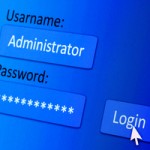 It’s rare these days to find anyone who doesn’t do at least some of their banking online. Online banking is convenient, and many institutions offer free bill pay services and even smartphone apps that let you deposit checks into your account without actually having to visit the bank. And in some respects online banking can provide a certain measure of security, since you don’t have to worry about losing checks that you want to deposit or be concerned that your payments by check get lost in the mail.
It’s rare these days to find anyone who doesn’t do at least some of their banking online. Online banking is convenient, and many institutions offer free bill pay services and even smartphone apps that let you deposit checks into your account without actually having to visit the bank. And in some respects online banking can provide a certain measure of security, since you don’t have to worry about losing checks that you want to deposit or be concerned that your payments by check get lost in the mail.
But online banking also comes with its own security risks. The key to accessing your account is your online password.
Here is some banking advice for managing and keeping these passwords secure.
Don’t Reuse Your Passwords. First of all, don’t use the same password for multiple banking or brokerage accounts. It becomes much easier for identity thieves to take control of all of your financial accounts if you use the same password. It’s very important to use a distinct password for each and every one of your accounts.
Go Beyond The Minimum. Each of the financial institutions where you have an account is likely to have a set of rules about how long your password needs to be, whether you need to have any special characters or numbers or capital letters, etc. It may be tempting to stick with the minimum password length, but making it a few characters longer than what’s required (and using more than the minimum number of special characters) makes your password significantly more secure.
Choose Hard to Guess Passwords. Similarly, if your bank requires you to use numbers and letters in your password, don’t just use an easy to guess word or phrase with the number “1” added to the end. Choosing the most obvious and easy to remember passwords will make it easier for someone to guess them.
Change Your Passwords Frequently. It’s also important to periodically change the passwords that you use to conduct your online banking. The longer you use the same password, the more likely it is for a thief to be able to guess tests or deduce it. Some financial institutions are prompting users to change their passwords after three or six months, and it’s a good idea to heed this advice.
Use All Available Protections. If your bank offers you the opportunity to set up your account so that you can only log in by using both your password and a one-time code that automatically gets sent to your cell phone, choose to do so. This “two factor authentication” is significantly more secure than simple password access to your account.
While these tips might seem like a bit of an unnecessary hassle, consider how much you’d be inconvenienced if a criminal gained access to all of your savings, investment and retirement accounts. Taking all precautions to protect yourself is worth the extra effort.
Tags: Banking Advice, Online Banking, passwords
This entry was posted
on Tuesday, April 8th, 2014 at 2:26 pm and is filed under Online Banking.
You can follow any responses to this entry through the RSS 2.0 feed.
You can leave a response, or trackback from your own site.
 It’s rare these days to find anyone who doesn’t do at least some of their banking online. Online banking is convenient, and many institutions offer free bill pay services and even smartphone apps that let you deposit checks into your account without actually having to visit the bank. And in some respects online banking can provide a certain measure of security, since you don’t have to worry about losing checks that you want to deposit or be concerned that your payments by check get lost in the mail.
It’s rare these days to find anyone who doesn’t do at least some of their banking online. Online banking is convenient, and many institutions offer free bill pay services and even smartphone apps that let you deposit checks into your account without actually having to visit the bank. And in some respects online banking can provide a certain measure of security, since you don’t have to worry about losing checks that you want to deposit or be concerned that your payments by check get lost in the mail.











